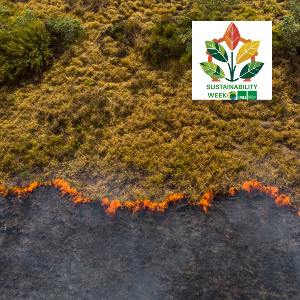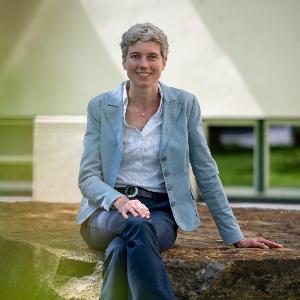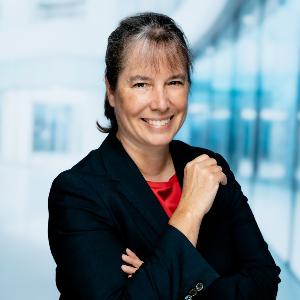
An interdisciplinary panel will address the topic of "Climate Science in the Digital Age." The status quo and further development of (digital) climate science will be examined in an opening keynote speech. Leading scientists from LMU will then discuss the significance of digital technologies, and artificial intelligence in particular, in the context of climate sciences. The discussion will address aspects of the sustainability of these technologies in terms of resource consumption, as well as the possibilities and opportunities for sustainability-related research and teaching.
The event will be opened by Prof. Dr. Julia Dittrich, Vice President for Digital Strategies at Ludwig Maximilian University in Munich.
Keynote:
Prof. Dr. Julia Pongratz (Chair of Physical Geography and Land Use Systems, LMU): "The digital (r)evolution of climate protection"
Impulses and panel discussion:
Prof. Dr. Gitta Kutyniok (Chair of Mathematical Foundations of Artificial Intelligence, LMU): "Sustainable Intelligence: How Mathematics Can Solve the Energy Crisis of AI"
Prof. Dr. Dieter Kranzlmüller (Chair of Communication Systems and System Programming, LMU): "High Performance, High Impact: Between Saving the Climate and Energy Hunger"
Prof. Dr. Julia Pongratz (Chair of Physical Geography and Land Use Systems, LMU)
Moderator: Dr. Berhard Goodwin (LMU)
Please note: The event language is German.
Prof. Dr. Julia Pongratz (Department of Geography, LMU)

© Julia Pongratz
"We understand the past through Earth observation, but the future lies in digital technology. Highly complex models project the state of ecosystems and the climate into the future, while digital twins simulate the sustainability of climate protection measures. The use of AI increases CO2 costs, but can itself contribute to decarbonization. We shed light on the possibilities—and limits—of digital technologies for climate protection and sustainability research."
Julia Pongratz is an ecosystem and climate researcher and professor of physical geography and land use systems at LMU. With contributions to the Intergovernmental Panel on Climate Change reports and the Global Carbon Budget, among others, she creates key scientific foundations for political decisions. In addition, she is involved in media relations, educational programs, and advising the German government to promote transparent dialogue for sustainable transformation.
Prof. Dr. Dieter Kranzlmüller (Institute of Computer Science, LMU)

© Johanna Lohr
"Supercomputing is indispensable for understanding complex global challenges such as climate change and developing solutions. But enormous computing power comes at a price: energy consumption and environmental impact are growing. The tension between efficiency, responsibility and scientific progress will determine how sustainable the future of computing really will be."
Dieter Kranzlmüller is a professor of computer science at LMU Munich and has been head of the Leibniz Supercomputing Centre (LRZ) of the Bavarian Academy of Sciences since 2017. His research focuses on high-performance computing, distributed systems and sustainable IT infrastructures. He is committed to the expansion of powerful and energy-efficient computing resources for science and research both nationally and internationally.
Prof. Dr. Gitta Kutyniok (Department of Mathematics, LMU)

© Gitta Kutyniok
"The current AI revolution is rapidly changing the economy, society and science, but its enormous energy requirements jeopardise ecological sustainability and resource-efficient digitalisation. My research aims to gain a fundamental understanding of this problem using mathematical methods and to develop sustainable alternatives through the co-evolution of novel hardware and software solutions."
Gitta Kutyniok is a professor at LMU Munich and heads the Chair of Mathematical Foundations of Artificial Intelligence. She currently serves as spokesperson for AI-HUB@LMU, director of the Konrad Zuse School of Excellence in Reliable AI, and vice president for science and research cooperation at the German Federal Association for AI Transformation. Her research focuses on reliable and sustainable AI with applications in medicine and robotics; in this context, she is also responsible for the Bavaria-Saxony project ‘Next Generation AI Computing (gAIn)’. She is also co-founder of the start-up Ecologic Computing GmbH.
